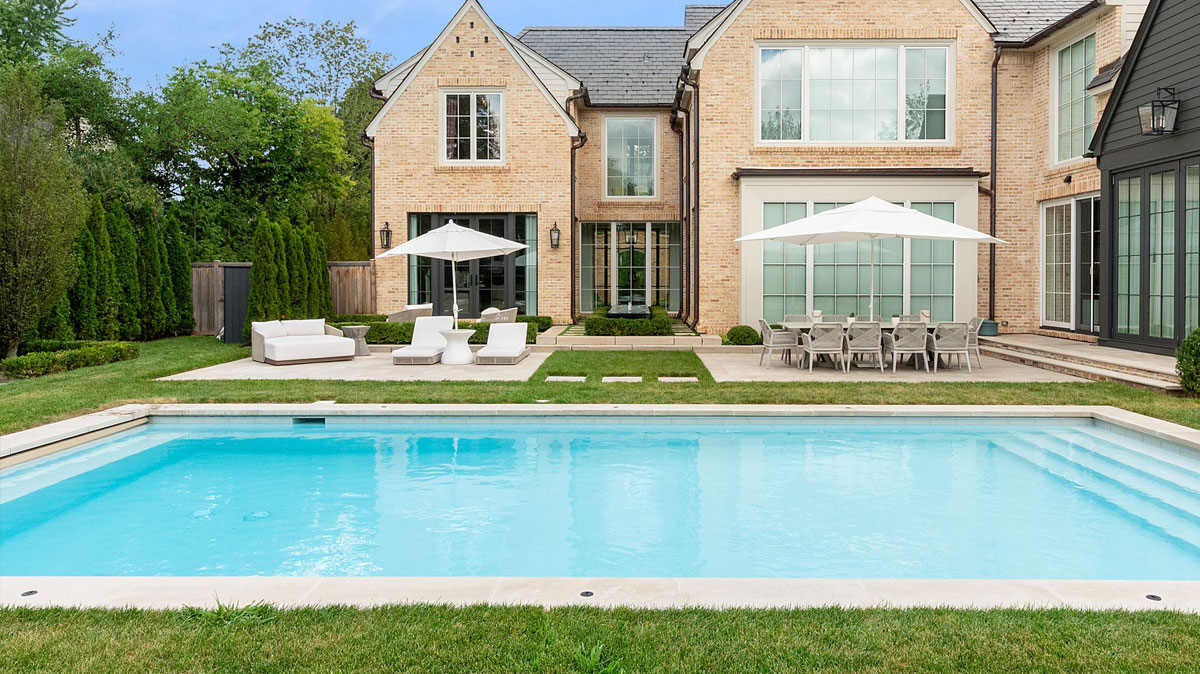
With the rise of the sharing economy, homeowners are finding creative ways to monetize their assets, and one of the latest trends is pool renting. Platforms like Swimply allow homeowners to rent out their pools by the hour, giving people without a pool the chance to enjoy a private swimming experience. But is renting out your pool a good idea? In this blog post, we’ll explore the pros and cons of pool renting services, and help you decide if it’s the right move for you.
How Do Pool Renting Services Work?
Pool renting services connect homeowners who have pools with people who want to use them, typically through an app or website. Much like renting out a vacation home or a car, you can list your pool, set your hourly rate, and manage bookings. The renter gets a private pool experience, while you earn extra income by letting them use your space.
Popular platforms like Swimply make it easy for homeowners to create a listing, manage availability, and communicate with renters. They often handle the booking process and payments, taking a percentage of the rental fee in return.
The Pros of Renting Out Your Pool
1. Earn Extra Income
- Monetize Your Pool: If you don’t use your pool as much as you’d like, renting it out can be a great way to turn an unused asset into a source of income. Depending on the location, pools can rent for $50 to $100 or more per hour.
- Flexibility: You can set your own rates, determine availability, and choose how often you rent out your pool. This allows you to earn money on your own terms.
2. Meet a Demand
- Private Pool Experience: Many people are looking for a private pool experience, especially during the summer months or in areas where public pools may be crowded. Pool renting services provide an alternative for families, couples, or groups who want exclusive access to a pool.
- Safe Outdoor Activity: As people seek safe outdoor activities, private pool rentals are becoming an attractive option. Renting out your pool can offer a solution for those looking to have fun while maintaining privacy and safety.
3. Minimal Effort
- Easy Setup: Once your pool is listed, maintaining the rental process is relatively easy. Most platforms handle the booking and payment processes for you, meaning you just need to prepare the space and maintain your pool.
- Extra Perks: Many renters are willing to pay extra for amenities like lounge chairs, pool toys, or even grilling areas, allowing you to increase your earnings.

The Cons of Renting Out Your Pool
1. Wear and Tear
- Increased Maintenance: More frequent use of your pool means increased maintenance. You may need to clean your pool more often, check the water’s chemical balance, and potentially replace equipment sooner due to extra wear and tear.
- Higher Utility Bills: Pool rentals can lead to higher water and electricity bills, especially if your pump or heating system is running more frequently.
2. Liability and Insurance
- Potential Liability Issues: Allowing strangers to use your pool comes with liability risks. Even with safety measures like signage and pool rules, accidents can happen, and you may be held responsible.
- Insurance Coverage: Some pool renting platforms offer insurance, but it’s important to check whether your homeowner’s insurance policy covers liability for pool rentals. You may need to purchase additional insurance or ensure that your policy covers accidents or damage caused by renters.
3. Privacy Concerns
- Strangers on Your Property: Renting out your pool means allowing strangers onto your property, which can raise concerns about privacy. You’ll need to feel comfortable with people using your space and ensure they respect your property and any rules you set.
- Managing Guests: While platforms handle bookings, you’ll still be responsible for maintaining the space and addressing any issues that arise during rentals. This may require more time and involvement than expected.
4. Local Regulations
- Check Local Laws: Before listing your pool, it’s essential to check your local regulations. Some cities or homeowner associations may have restrictions on short-term rentals or may require permits to rent out private property.
Tips for Successful Pool Renting
If you decide to rent out your pool, here are some tips to help make the process smooth and enjoyable:
- Maintain Your Pool: Keep your pool clean, safe, and well-maintained. A well-kept pool will attract more renters and help you maintain positive reviews.
- Set Clear Rules: Establish and communicate rules for pool use, such as no diving, no glass around the pool, or the maximum number of guests allowed.
- Offer Extras: Renters are often willing to pay more for additional amenities like towels, lounge chairs, or BBQ grills. Adding these perks can enhance the rental experience and increase your earnings.
- Screen Your Renters: Many platforms allow you to vet potential renters by reading reviews from previous hosts or setting guidelines for who can rent your pool.
- Monitor Insurance: Make sure your homeowner’s insurance policy covers pool rentals or purchase additional coverage for extra peace of mind.
Conclusion: Is Pool Renting a Good Idea?
Renting out your pool can be a great way to earn extra income, especially if your pool isn’t in use as often as you’d like. However, it’s important to weigh the potential downsides, including increased maintenance, privacy concerns, and liability risks. With the right precautions, pool renting can be a profitable and relatively low-effort venture, but it’s essential to ensure you’re fully prepared before diving in.
If you’re considering renting out your pool and need advice on maintaining or upgrading your pool, contact Sunset Pools & Spas. We can help ensure your pool is in top condition, ready to impress renters and keep them coming back for more.